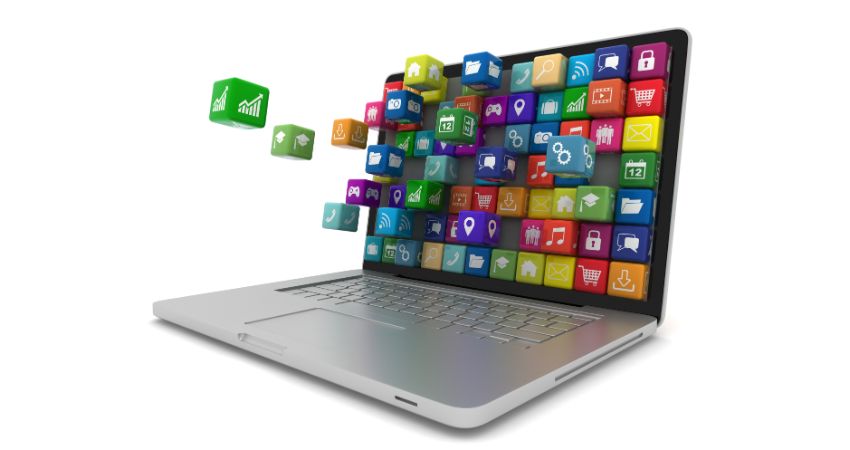
Introduction
In today’s digital age,Computer Clean and Optimize are essential tools for work, entertainment, and communication. However, many of us overlook the importance of regular maintenance to keep them running smoothly. In this guide, we’ll explore the significance of keeping your computer clean and optimized, along with practical tips to achieve this.
Why Computer Clean and Optimize Matters
Preventing Hardware Damage
Dust and debris can accumulate inside your computer, causing overheating and potentially damaging components such as the CPU and graphics card. Regular cleaning can prevent these issues and extend the lifespan of your hardware.
Enhancing Performance
A cluttered system, both physically and digitally, can slow down your computer’s performance. By keeping it clean and organized, you can ensure smoother operation and faster response times.
Improving Longevity
Just like any other electronic device, your computer requires proper care to last longer. Regular maintenance not only improves performance but also extends the overall lifespan of your system, saving you money in the long run.
Tips for Physical Cleaning
To begin with, gather your cleaning supplies, including compressed air, a soft cloth, and isopropyl alcohol. Start by shutting down your computer and unplugging it from the power source. Use the compressed air to blow away dust from the vents, keyboard, and other crevices. Then, gently wipe the surfaces with a cloth dampened with isopropyl alcohol to remove any stubborn stains or residue.
Cleaning Software and Files
Importance of Software Updates
Keeping your operating system and software up to date is crucial for security and performance. Regular updates patch vulnerabilities and introduce new features, ensuring smooth operation and protection against cyber threats.
Removing Unnecessary Files and Programs
Over time, your computer accumulates unnecessary files and programs that take up valuable disk space and slow down performance. Take the time to uninstall unused programs and delete temporary files to free up storage and improve efficiency.
Scanning for Malware and Viruses
Malware and viruses can wreak havoc on your system, compromising security and performance. Invest in reliable antivirus software and perform regular scans to detect and remove any malicious threats.
Organizing Your Files and Folders
Importance of Organization
A cluttered desktop and disorganized file structure can make it difficult to find what you need and slow down productivity. Computer Clean and Optimize Establishing a system for organizing your files and folders can streamline your workflow and make it easier to locate important documents.
Tips for Effective File Management
Create separate folders for different types of files, such as documents, photos, and videos. Use descriptive file names and arrange them in a logical manner to facilitate easy access. Consider utilizing cloud storage solutions for backup and remote access to your files.
Optimizing Startup Programs
Identifying Startup Programs
Startup programs are applications that automatically launch when you start your computer. While some are essential, others may be unnecessary and contribute to longer boot times.
Disabling Unnecessary Ones
Take control of your startup programs by reviewing the list and disabling any that are not essential. This can significantly reduce startup time and improve overall system performance.
Defragmenting Your Hard Drive
Explanation of Fragmentation
As files are created, modified, and deleted on your hard drive, they can become fragmented, meaning that parts of the file are stored in different locations. This fragmentation slows down access times and decreases overall system performance.
How Defragmentation Helps
Defragmentation is the process of reorganizing fragmented files to optimize storage efficiency and improve performance. Most modern operating systems perform automatic defragmentation, but you can also schedule manual defragmentation for optimal results.
Regular Maintenance Schedule
Creating a Routine
Establishing a regular maintenance schedule ensures that your computer stays clean and optimized over time. Set aside dedicated time each month to perform tasks such as cleaning, updating software, and running virus scans.
Frequency of Maintenance Tasks
While some tasks, like physical cleaning, may only need to be done every few months, others, like software updates and virus scans, should be performed more frequently. Find a balance that works for you and stick to it to keep your computer running smoothly.
Conclusion
In conclusion, keeping your computer clean and optimized is essential for maintaining performance, preventing hardware damage, and extending longevity. By following the tips outlined in this guide, you can ensure that your system remains in peak condition for years to come.
Unique FAQs
- How often should I clean my computer physically?
- It’s recommended to clean your computer physically every 3-6 months, depending on your environment and usage.
- Do I really need antivirus software if I have a Mac?
- While Macs are less prone to viruses than PCs, they are not immune. It’s still important to use antivirus software to protect against malware and other threats.
- Can I defragment my solid-state drive (SSD)?
- No, defragmentation is not necessary and can actually reduce the lifespan of an SSD. SSDs use a different technology called wear leveling to optimize performance.
- What should I do if my computer is running slow even after cleaning and optimizing?
- If your computer is still running slow, it may be a sign of a more serious issue such as hardware failure or malware infection. In such cases, it’s best to consult a professional for assistance.
- Is it safe to use compressed air to clean my computer?
- Yes, compressed air is safe for cleaning computers as long as you use it properly. Hold the can upright and use short bursts to avoid liquid residue from escaping.
